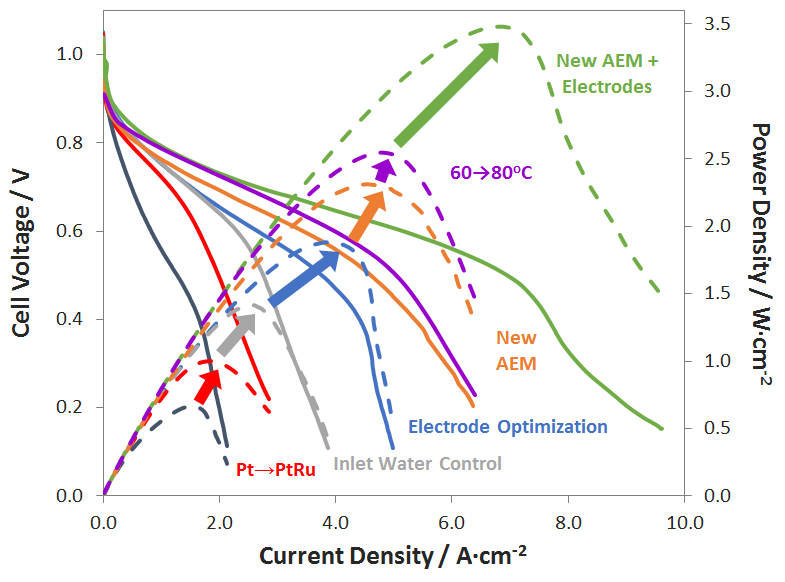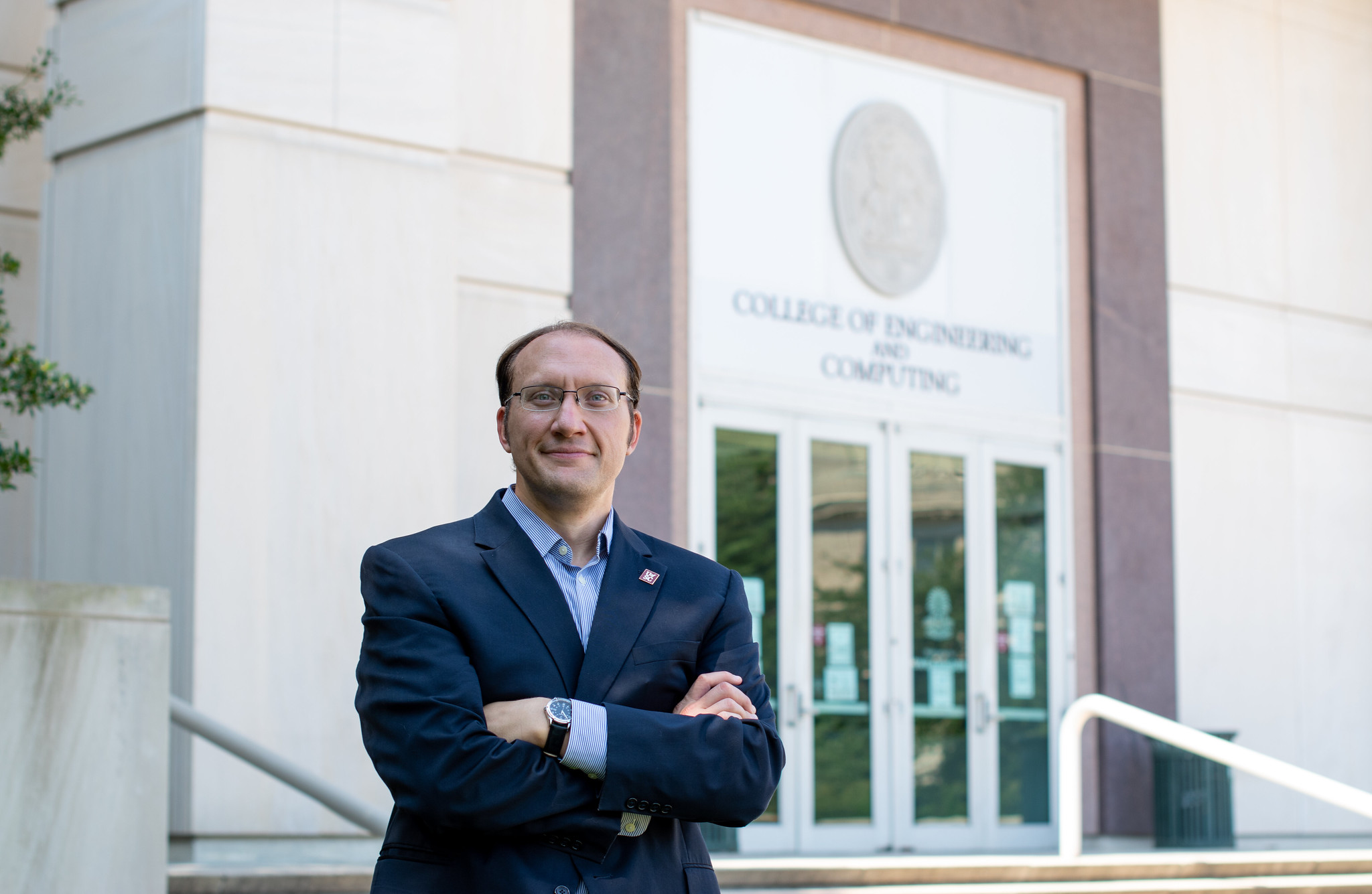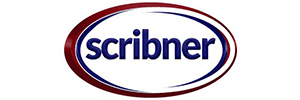ECS is proud to present Prof. William E. Mustain via webinar on September 23, 2020, at 1000 ET.
Opportunities and Fundamental Challenges for Anion Exchange Membrane Fuel Cells
Prof. William (Bill) Mustain
Professor in the Department of Chemical Engineering at the University of South Carolina
Date: September 23, 2020
Time: 1000-1100 ET

In recent years, advances in alkaline exchange membrane fuel cells (AEMFCs) with anion exchange membrane (AEM) solid polymer electrolytes have gained traction due to their distinct—and potentially game-changing—advantages over proton exchange membrane fuel cells. There has been growing excitement in the past two to three years, especially as AEMFCs have reached a stage in their development where state-of-the-art cells are reaching comparable power densities to PEMFC’s (proton exchange membrane fuel cells) and can operate stably for more than 1000 hours. However, AEMFCs still need to address at least three critical issues if they are to be deployed in the field: 1) water management in AEMFCs is more complex than PEMFCs, and there is a tendency for significant water accumulation and flooding at the anode—sacrificing both performance and longevity; 2) there is a need to reduce costs significantly below the PEMFCs and doing this will require completely PGM-free catalysts; and 3) management of CO2 and mitigation of CO2-related performance losses.
This presentation begins with an introduction to how AEMFCs operate, and their similarities and differences to PEMFCs. Then, state-of-the-art performance and durability is discussed along with an explanation for how these two were systematically improved over the past few years due to advances in materials as well as innovations in electrode design and reactor engineering. Next, the three issues above—water management, PGM-free catalysts, and CO2 management—are discussed, with a focus on the fundamental thermodynamic, kinetic, and transport barriers that remain. Finally, an outlook on the future of the technology and important areas for research is discussed.
Benefits of attending this webinar
- Understand the fundamentals of AEMFCs and their difference from PEMFCs
- Presentation of state-of-the-art cell performance and durability—and progress towards U.S. DOE targets
- Discussion on transitioning AEMFCs to realistic operating conditions
- Outlook of the future of the technology
Prof. Mustain
 William (Bill) Mustain is a professor in the Department of Chemical Engineering at the University of South Carolina (USC). In 2017, Mustain moved to USC from the Department of Chemical & Biomolecular Engineering at the University of Connecticut (UConn), where he was Associate Professor and the United Technologies Corporation Professor of Engineering Innovation. He joined UConn as Assistant Professor in 2008, and was tenured and promoted to Associate Professor in 2013. Professor Mustain has worked in several areas related to electrochemical energy generation and storage, including high capacity materials for Li-ion batteries, catalysts and supports for proton exchange membrane and anion exchange membrane fuel cells and electrolyzers, electrochemical synthesis of fuels, electrochemical control of biological systems, the purposeful use of carbonates in low-temperature electrochemical systems, and the electrochemical capture and utilization of CO2. Mustain has been the PI or Co-PI on approximately $10M of externally funded research projects. He has published over 100 peer-reviewed articles and three book chapters to date, and has over 100 invited and conference talks. He has received several awards, including the 2009 Illinois Institute of Technology Young Alumnus Award, 2013 U.S. Department of Energy Early Career Award, 2014 Connecticut Quality Improvement Platinum Award, 2014 Supramaniam Srinivasan Young Investigator Award (awarded by The Electrochemical Society Energy Technology Division), 2017 UConn Chemical Engineering Faculty of the Year Award, 2019 USC Chemical Engineering Publication Award, and 2015-2016 Fulbright Scholar Fellowship.
William (Bill) Mustain is a professor in the Department of Chemical Engineering at the University of South Carolina (USC). In 2017, Mustain moved to USC from the Department of Chemical & Biomolecular Engineering at the University of Connecticut (UConn), where he was Associate Professor and the United Technologies Corporation Professor of Engineering Innovation. He joined UConn as Assistant Professor in 2008, and was tenured and promoted to Associate Professor in 2013. Professor Mustain has worked in several areas related to electrochemical energy generation and storage, including high capacity materials for Li-ion batteries, catalysts and supports for proton exchange membrane and anion exchange membrane fuel cells and electrolyzers, electrochemical synthesis of fuels, electrochemical control of biological systems, the purposeful use of carbonates in low-temperature electrochemical systems, and the electrochemical capture and utilization of CO2. Mustain has been the PI or Co-PI on approximately $10M of externally funded research projects. He has published over 100 peer-reviewed articles and three book chapters to date, and has over 100 invited and conference talks. He has received several awards, including the 2009 Illinois Institute of Technology Young Alumnus Award, 2013 U.S. Department of Energy Early Career Award, 2014 Connecticut Quality Improvement Platinum Award, 2014 Supramaniam Srinivasan Young Investigator Award (awarded by The Electrochemical Society Energy Technology Division), 2017 UConn Chemical Engineering Faculty of the Year Award, 2019 USC Chemical Engineering Publication Award, and 2015-2016 Fulbright Scholar Fellowship.
We thank our webinar sponsors, whose support makes these complimentary programs possible.
Read more about ECS Webinars.



